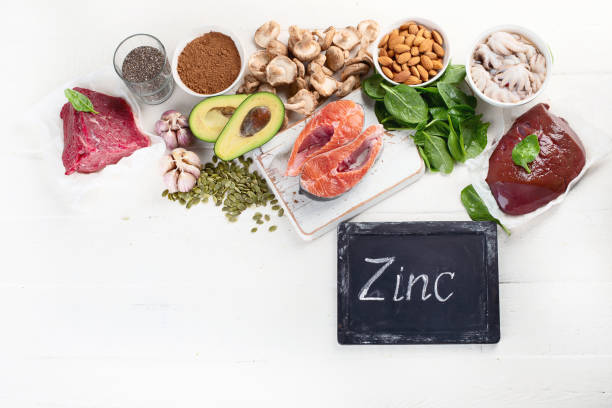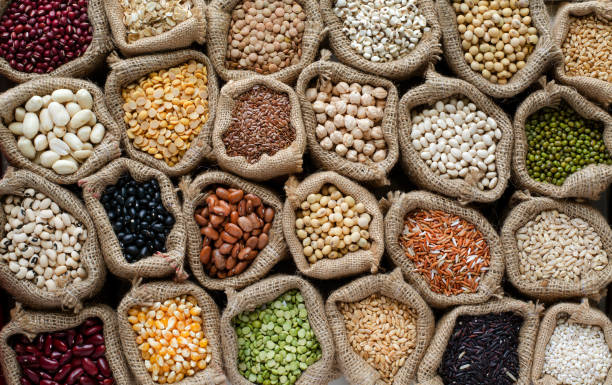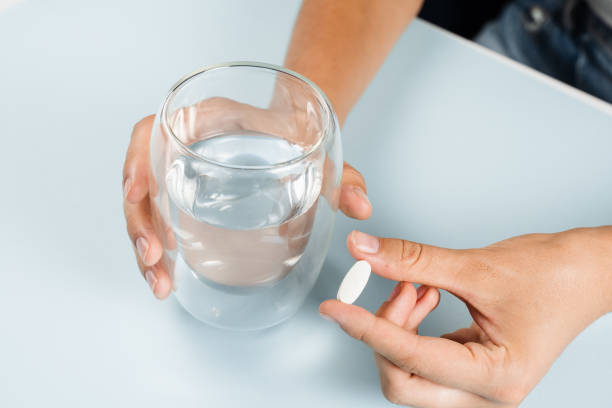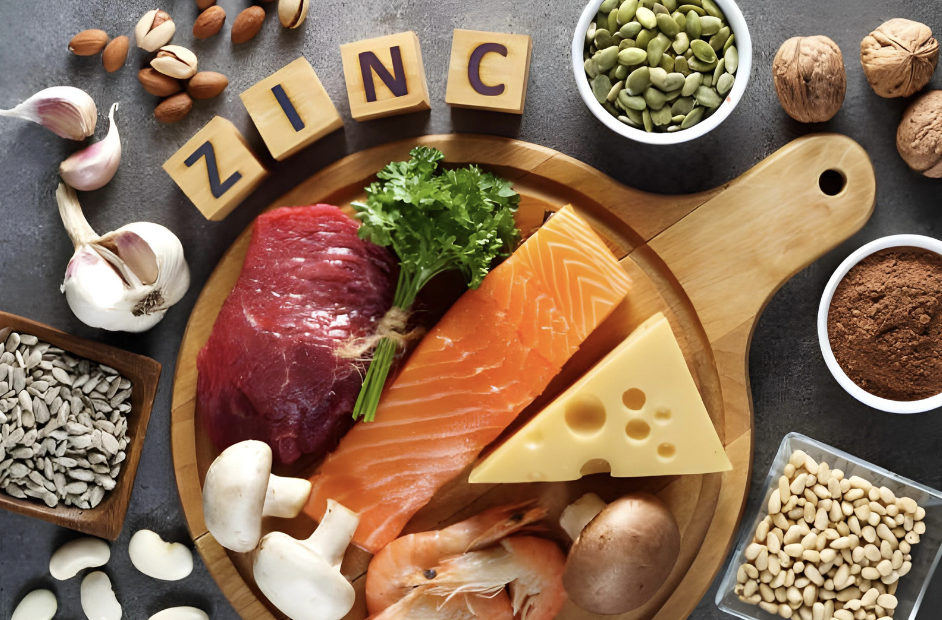What to Eat and Drink
Finding Foods Rich in Zinc Has Never Been Easier
A zinc deficit can result in a weakened immune system, delayed wound healing, and poor growth and development, thus it is critical to consume enough of this key mineral. Fortunately, there are a range of zinc-rich foods that are easily available, whether you eat meat or plants.
Zinc is an essential mineral that contributes significantly to overall health and wellness. It serves a variety of activities in the body, including immune system support, wound healing, DNA synthesis, and normal growth and development. Despite its necessity, the body does not generate or store zinc, therefore it must be supplied from food.
Foods high in zinc and their benefits
There are many of zinc-rich foods to select from. Meat eaters have a variety of options, including oysters, cattle, and chicken. Oysters, in particular, are an excellent source of zinc, with more per serving than any other meal. Oysters are not only delicious, but they also contain a lot of protein and other important nutrients.
Beef and poultry are also good sources of zinc, delivering both this necessary mineral and high-quality protein. Incorporating lean cuts of beef or skinless fowl into your meals is an excellent method to increase your zinc consumption while still having a nice and gratifying dinner.
There are numerous options available to people pursuing a plant-based diet. Legumes, nuts, and seeds are high in zinc and easy to add into meals and snacks. Lentils, chickpeas, and beans are abundant in zinc, fiber, and protein. They can be used in a variety of cuisines, including soups & stews, salads, and dips.
Nuts and seeds, such as pumpkin seeds and cashews, are high in zinc and provide an easy and nutritious snack. Sprinkle them on top of salads, mix them into your morning smoothie, or eat them on their own for a quick zinc boost.

Zinc-rich foods you can easily find in your local grocery store
If you want to increase your zinc consumption, you don’t need to search far. Many zinc-rich foods are easily found at your local grocery shop. Beef, chicken, and pork are all good sources of zinc. Look for lean cuts of meat to keep your overall fat intake under control.
Zinc is abundant in seafood such as oysters, crab, and lobster. These delights not only have a rich and distinct flavor but also contain a significant amount of zinc. If you don’t like seafood, don’t worry. There are many additional alternatives accessible.
There are several zinc-rich plant-based foods available in the vegetable area. Lentils, chickpeas, and beans are all great alternatives. They are high in zinc, as well as protein and fiber. Add them to soups, stews, or salads for a nutritious and fulfilling dinner.
Nuts and seeds are another excellent way to increase your zinc consumption. Look for pumpkin seeds, cashews, and almonds, which are high in zinc. They can be eaten on their own as a snack or included into dishes for added crunch and taste.
Incorporating zinc-rich foods into your daily meals
Now that you know which foods are strong in zinc, try incorporating them into your daily diet. Here are a few suggestions to get you started:
- For breakfast, try adding pumpkin seeds or cashews to your oatmeal or yogurt for a boost of zinc and added texture.
- For lunch, incorporate legumes like lentils or chickpeas into your salads or wraps. They not only add a protein punch but also provide a good source of zinc.
- For dinner, opt for lean cuts of beef or skinless poultry as your main protein source. Pair them with a side of roasted vegetables for a well-rounded and zinc-rich meal.
- Snack on a handful of almonds or pumpkin seeds between meals to keep your energy levels up and boost your zinc intake.
By being mindful of your food choices and incorporating zinc-rich foods into your daily meals, you can ensure you’re getting an adequate intake of this essential mineral.

Vegetarian and vegan sources of zinc
If you eat a vegetarian or vegan diet, you may question how to get enough zinc without consuming animal products. The good news is that there are numerous plant-based foods that are rich in zinc.
Legumes like lentils, chickpeas, and beans are good vegetarian and vegan options. They are high in zinc, but also include a variety of other nutrients including as protein and fiber. Add them to soups, stews, or salads for a nutritious and fulfilling dinner.
Nuts and seeds are also an excellent way to increase your zinc consumption. Pumpkin seeds, cashews, and almonds are all high in zinc and can be eaten alone as a snack or mixed into recipes for added crunch and flavor.
Whole grains, such as quinoa and brown rice, are similarly high in zinc and can be used as a meal base or side dish. Fill them with veggies and beans for a complete and balanced supper.
By including these plant-based zinc sources into your diet, you can ensure that you achieve your nutritional requirements while living a vegetarian or vegan lifestyle.
Recipes using zinc-rich foods
Incorporating zinc-rich foods into your diet does not have to be tedious. There are numerous wonderful recipes that include zinc-rich foods. Here are some suggestions to help you get started:
- Lentil and Vegetable Curry: This substantial and tasty curry has lentils, veggies, and spices. Serve over brown rice for a hearty and zinc-rich dinner.
- Chickpea Salad with Pumpkin Seeds: For a light and nutritious salad, combine cooked chickpeas, fresh veggies, and a sprinkle of pumpkin seeds. Drizzle with lemon juice and olive oil for extra flavor.
- Beef Stir-Fry with Cashews: Cook lean beef strips with your favorite vegetables before topping with cashews for a quick and easy dinner strong in protein and zinc.
- Oyster Rockefeller: For a more decadent treat, make Oyster Rockefeller. This classic dish consists of oysters topped with a luscious blend of spinach, cheese, and breadcrumbs before being cooked to perfection.
These are just a few examples, but the possibilities are endless. Get creative in the kitchen and experiment with different combinations of zinc-rich ingredients to create meals that are both nutritious and delicious.

Recommended daily intake of zinc
The recommended daily intake of zinc varies depending on age, sex, and life stage. According to the National Institutes of Health, the recommended dietary allowances (RDAs) for zinc are as follows:
- Infants (7-12 months): 3 mg
- Children (1-3 years): 3 mg
- Children (4-8 years): 5 mg
- Children (9-13 years): 8 mg (boys) / 8 mg (girls)
- Adolescents (14-18 years): 11 mg (boys) / 9 mg (girls)
- Adults (19 years and older): 11 mg (men) / 8 mg (women)
- Pregnant women: 11 mg
- Breastfeeding women: 12 mg
It is crucial to note that these are basic recommendations, and specific requirements may differ. If you have certain health issues or dietary limitations, you should always check with a healthcare expert or qualified dietitian to determine your exact requirements.
Potential risks and side effects of consuming too much zinc
While zinc is a necessary vitamin, over use can be harmful to one’s health. Adults should consume no more than 40 milligrams of zinc per day. Consuming more than this quantity might result in zinc poisoning, which can produce symptoms like nausea, vomiting, diarrhea, and stomach cramps.
Long-term zinc intake can interfere with copper absorption, resulting in copper insufficiency. This can cause symptoms like anemia, low white blood cell count, and bone abnormalities.
It’s worth noting that excessive zinc intake is more likely to develop through supplementation than from food sources. If you’re thinking about taking zinc supplements, you should talk to your doctor about the optimal dosage for your unique needs.

Supplements and fortified foods as alternative sources of zinc
In addition to dietary sources, zinc can be received through supplements and fortified foods. Zinc supplements are available in a variety of forms, including gluconate, acetate, and sulfate. They can be administered as pills or liquids.
Fortified meals, such as breakfast cereals and energy bars, may also include zinc. These items are fortified with additional minerals, including zinc, to aid in meeting daily dietary requirements.
While supplements and fortified foods might help you get more zinc, keep in mind that they should not replace a well-balanced diet. It is usually preferable to receive nutrients from entire meals whenever possible.
Conclusion
Incorporating zinc-rich foods into your diet is a simple and efficient method to ensure you obtain enough of this important mineral. Whether you eat meat or follow a plant-based diet, there are lots of possibilities.
Oysters, meat, chicken, legumes, nuts, and seeds can all help you achieve your daily zinc requirements. Get creative in the kitchen and experiment with new recipes that incorporate zinc-rich products.
If you have any unique health issues or dietary limitations, please speak with a healthcare practitioner or certified dietitian. They can offer personalised advice and ensure you are meeting your dietary requirements.
So, the next time you’re at the grocery store, load up on zinc-rich foods and make them a regular part of your healthy diet. Your body will thank you for it!
Trusted Health, Wellness, and Medical advice for your well-being


